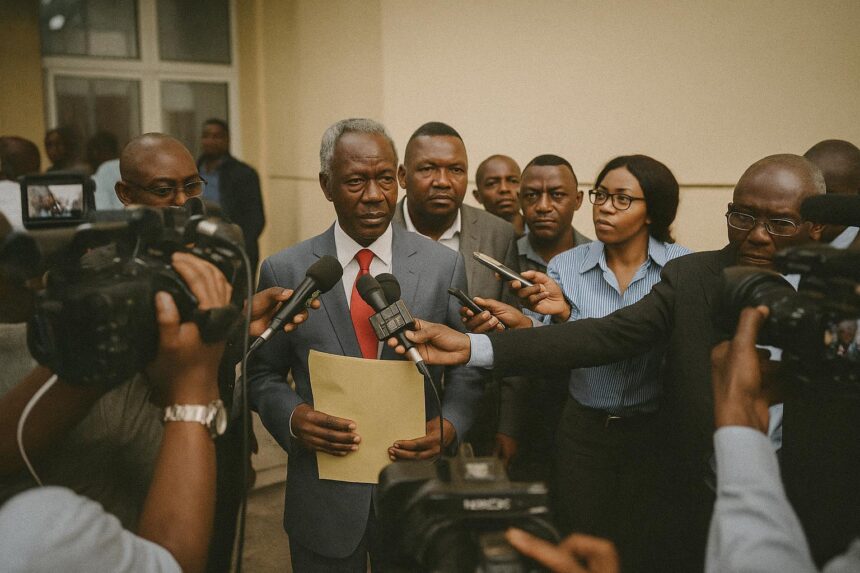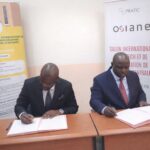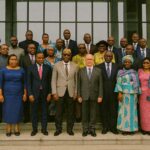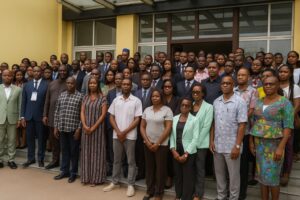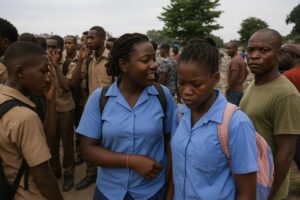A tangible uptick in nationwide success
When the Ministry of Primary, Secondary and Literacy Education unveiled the figures for the June 2025 General Baccalaureate, the announcement carried more than symbolic weight. Out of 92,995 candidates effectively examined, 43,682 secured the coveted diploma, translating into a national success rate of 46.97 %. The outcome represents a 1.86-percentage-point rise compared with 2024, a modest but noteworthy progression that officials quickly framed as evidence of gradual system consolidation.
Dominique Oba, presiding over the national juries, credited an improved alignment between assessment standards and classroom practice, together with heightened vigilance against examination malpractice. Congolese media outlets echoed his satisfaction, noting that the candidate at the apex—a science-track student in series C—garnered an average mark of 17/20, well above the admission threshold of 10/20.
Regional mosaics and the diaspora dimension
Beneath the aggregate statistic lies a diverse regional tapestry. Departments such as Cuvette-Ouest, Likouala and Plateaux topped the admission league table, whereas Pointe-Noire and Kouilou posted more subdued performances. Education specialists in Brazzaville attribute these contrasts to variations in teacher availability, infrastructure density and parental income, patterns that mirror findings of recent surveys by the UNESCO Institute for Statistics (UIS, 2023).
A discreet yet significant footnote is the participation of Congolese pupils outside the national borders. Examination centres in Luanda and Beijing enabled young Congolese enrolled in the Angolan and Chinese capitals to sit the same papers simultaneously. Officials argue that the exercise not only reinforces communal identity in the diaspora but also ensures uniform academic standards, a commitment consistent with the African Union’s Continental Education Strategy 2025 (AU, 2024).
Curricular fine-tuning and teacher-training priorities
The incremental rise in the pass rate has reopened discussion on the broader curriculum reform initiated in 2022, which emphasises competency-based learning, digital literacy and bilingual proficiency in French and English. According to senior adviser Élodie Ngamboulou, the updated syllabi “seek to equip graduates for both domestic needs and the sub-regional labour market”, a reference to the Central African Economic and Monetary Community’s shared workforce ambitions.
Yet curriculum innovation hinges on the human factor. The World Bank’s latest Human Capital Review for Congo (2024) underscores that only 62 % of secondary-level teachers possess the full pedagogical qualification required by statute. In response, the government has expanded in-service training modules at the National Institute of Education Sciences and has negotiated a €25 million facility with the Agence Française de Développement to upgrade science laboratories in ten provincial lycées. Early indications suggest that schools benefiting from pilot investments posted pass rates two to three points above the national mean.
Financing education within fiscal constraints
Maintaining, let alone accelerating, educational gains requires predictable funding. The 2025 Finance Law earmarked 4.3 % of GDP for the education sector, a level comparable to the sub-Saharan average recorded by the African Development Bank (AfDB, 2024). Although oil revenues have stabilised public accounts, the Ministry of Finance continues to advocate a diversified funding mix, including public-private partnerships for school infrastructure and targeted grants from multilateral partners.
Diplomatic observers stress that prudent macro-economic stewardship has improved Brazzaville’s credit profile, enabling the state to channel resources towards classroom construction and textbook procurement without jeopardising debt-sustainability indicators. This calibrated approach appears to resonate with international donors, as evidenced by renewed European Union budget-support tranches approved in March 2025.
Aligning with global benchmarks and future trajectories
The country’s trajectory toward Sustainable Development Goal 4—quality education—remains cautiously optimistic. With the current pace of progress, analysts at the Economic Commission for Africa project that Congo-Brazzaville could surpass a 55 % baccalaureate pass rate by 2028, provided teacher-pupil ratios continue to improve and rural connectivity gaps narrow.
Looking ahead, policymakers are weighing the introduction of a digital examination platform to streamline logistics and further curb malpractice. Trials conducted in Owando and Dolisie in May 2025 yielded encouraging technical results, though unions have urged comprehensive stakeholder consultation before nationwide roll-out. Such deliberations epitomise the delicate balance between innovation and inclusivity that will shape the republic’s educational future.
An inflection point, not an endpoint
The 2025 baccalaureate results, while still shy of the 50-percent psychological threshold, crystallise a discernible trend of incremental improvement. They also highlight the enduring disparities that require calibrated policy responses rather than sweeping proclamations. For diplomats and investors alike, the message is clear: Congo-Brazzaville is intent on nurturing a human capital base commensurate with its economic aspirations, and it seeks constructive international engagement to do so.
As the academic calendar resets and preparations begin for the 2026 session, the gains wp-signup.phped this year serve as both affirmation and admonition. Affirmation that reforms are bearing fruit; admonition that sustained effort and strategic partnerships will be essential to convert promise into pervasive educational excellence.

